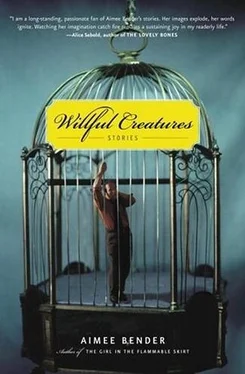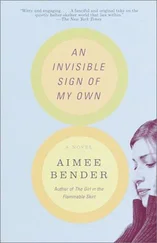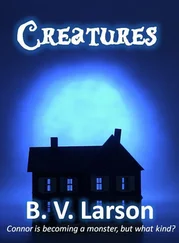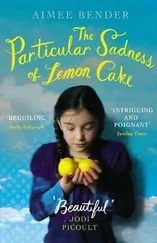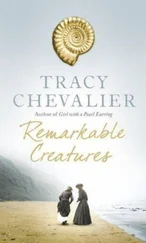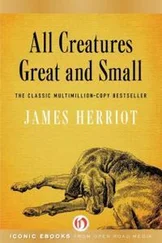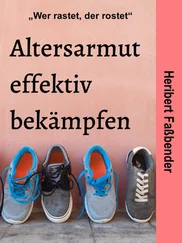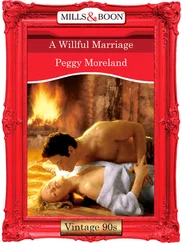Aimee Bender - Willful Creatures
Здесь есть возможность читать онлайн «Aimee Bender - Willful Creatures» весь текст электронной книги совершенно бесплатно (целиком полную версию без сокращений). В некоторых случаях можно слушать аудио, скачать через торрент в формате fb2 и присутствует краткое содержание. Год выпуска: 2006, Издательство: Anchor Books, Жанр: Современная проза, на английском языке. Описание произведения, (предисловие) а так же отзывы посетителей доступны на портале библиотеки ЛибКат.
- Название:Willful Creatures
- Автор:
- Издательство:Anchor Books
- Жанр:
- Год:2006
- ISBN:нет данных
- Рейтинг книги:4 / 5. Голосов: 1
-
Избранное:Добавить в избранное
- Отзывы:
-
Ваша оценка:
- 80
- 1
- 2
- 3
- 4
- 5
Willful Creatures: краткое содержание, описание и аннотация
Предлагаем к чтению аннотацию, описание, краткое содержание или предисловие (зависит от того, что написал сам автор книги «Willful Creatures»). Если вы не нашли необходимую информацию о книге — напишите в комментариях, мы постараемся отыскать её.
Willful Creatures — читать онлайн бесплатно полную книгу (весь текст) целиком
Ниже представлен текст книги, разбитый по страницам. Система сохранения места последней прочитанной страницы, позволяет с удобством читать онлайн бесплатно книгу «Willful Creatures», без необходимости каждый раз заново искать на чём Вы остановились. Поставьте закладку, и сможете в любой момент перейти на страницу, на которой закончили чтение.
Интервал:
Закладка:
Settling down to a breakfast of milk and bread, the woman looked into the pot almost as an afterthought. Surely they would not survive the oven and the tires and the road. But. All seven-raw, gray, growing. Her mouth went dry, and she ignored them furiously for the rest of the day, jabbing the dirt with a spade as she bordered the house with nasturtium seeds.
Later that day, she stapled them in a box and lugged them to the post office and mailed them to Ireland, where potatoes belonged. She left no return address. When they were back in the pot the next morning, she soaked them in kerosene, lit them on fire, and kicked them into the hills. When they were back again the next morning, she walked two miles with them in her knapsack and threw them over the county line, into the next county. But they were back again by morning, and again, and again and again, and by the twentieth day, they curved inward even more and had grown sketches of hands and feet.
Her heart pulled its curtain as she held each potato up to the bare hanging lightbulb and looked at its hint of neck, its almost torso, its small backside. Each of the seven had ten very tiny indented toes and ten whispers of fingertips.
Trembling, she left the potatoes in the pot and fled her house as fast as she could. She found no comfort in the idea of seeing her sincere lover so she went to the town tavern and had a glass of beer. The bartender told her a long story about how his late wife had refused to say the word “love” in the house for fear she only had a certain amount of times in a life to say the word “love” and she did not want to ever use them up. “So she said she liked me, every day, over and over.” He polished a wineglass with a dirty cloth. “I like you is not the same,” he said. “It is not. On her deathbed even, she said ‘Darling, I like you.’” He spit in the cloth and swept it around the stem. “You’d think,” he said, “that even if her cockamamie idea were true, even if there were only a certain amount of loves allotted per person, you’d think she could’ve spent one of them then.”
The woman sipped her beer as if it were tea.
“You say nothing,” he said. “I don’t know which is worse.”
On the buzzy walk home, she stopped by the cemetery and on her way to see her family she passed the bartender’s wife’s grave which stated, simply, she was greatly loved.
Back at her house, holding her breath, she sliced all seven potatoes up with a knife as fast as she could. The blade nearly snapped. She could hardly look at the chubby suggestions of arms and legs as she chopped, and cut her own finger by accident. Drunk and bleeding, she took the assortment of tuber pieces and threw them out the window. She only let out her breath when it was over.
One piece of potato was left on the cutting board, so she ate it, and for the rest of the evening she swept the stone floor of her house, pushing every speck of dirt out the door until the floor rang smooth.
She woke at the first light of day and ran into the kitchen and her heart clanged with utter despair and bizarre joy when she saw those seven wormy little bodies, whole, pressed pale gray against the black of the cast iron. Their toes one second larger. She brushed away the tears sliding down her nose and put a hand inside the pot, stroking their backsides.
In the distance, the sunflowers on the hill waved at her in fields of yellow fingers.
August came and went. The potatoes stayed. She could not stand to bother them anymore. By the fourth month, they were significantly larger and had a squareish box of a head with the faintest pale shutter of an eyelid.
Trucks, big and small, rattled through the town but they did not stop to either unload or load up. She hadn’t seen her lover in months. She hadn’t been to the cemetery either; the weeds on her family were probably ten feet high by now.
With summer fading from her kitchen window, the woman saw her neighbor meet up with the latest suitor, yellow petals peeking out from her wrists and collar, collecting in clusters at the nape of her neck. He himself was hidden by armfuls of red roses. They kissed in the middle of the dirt road.
Inside her house, the woman shivered. She did not like to look at so many flowers and the sky was overcast. Pluck, pluck, pluck, she thought. Her entire floor was so clean you could not feel a single grain when you walked across it with bare feet. She had mailed her electricity bill and bought enough butter and milk to last a week. The nasturtiums were watered.
The smacking sound kept going on by the window. Wet.
It was lunchtime by now, and she was hungry. And you can’t just eat butter by itself.
She put the potatoes in the oven again. With their bellies and toes. With their large heads and slim shoulders. She let them bake for an hour and a half, until their skin was crisp and bright brown. Her stomach was churning and rose petals blew along the street as she sat herself down at her kitchen table. It was noon. She used salt and pepper and butter, and a fork and a knife, but they were so much larger now than your average potato, and they were no longer an abstract shape, and she hated potatoes, and the taste in her mouth felt like the kind of stale dirt that has lost its ability to grow anything. She shoved bite after bite into her teeth, to the sound of the neighbor laughing in her kitchen, through such dizziness she could hardly direct the fork into her mouth correctly. She chewed until the food gathered in the spittle at the corners of her lips, until she had finished one entire enormous potato. The other six crackled off the table and spilled onto the floor.
That night, she had a horrible stomachache, and she barely slept. She dreamed of a field of sunflowers and in each pollened center was the face of someone she once knew. Their eyes were closed.
At dawn, when she walked over to the stove, as she did every morning now, pulling her bathrobe tighter around her aching stomach, there were only six potatoes in the pot. Her body jerked in horror. She must have miscounted. She counted them over. Six. She counted again. Six. Again. Six. Six. Again. Six. Her throat closed up as she checked under the stove and behind the refrigerator and around the whole kitchen. Six. She checked all their markings until it was clear which one was missing: the one with the bumpiest head, with the potato eye right on its shoulder blade. She could feel it take shape again inside her mouth. A wave of nausea swept over her throat, and she spent the rest of the day in the corner of the old red couch, choking for breath. She threw up by evening from so much crying, but the seventh potato never came back.
The sunflower fields browned with autumn, and within a month, two other potatoes were expelled from the pot. There was simply not enough room for all six in the pot anymore. She had done nothing this time. She didn’t want to put them outside, bare, in the cold, so when they were soft enough, she buried them deep beneath the hibernating nasturtium seeds. They never came back either. The four remaining in the pot seemed to be growing fine but it was unsettling to look in and see only four now; she had grown so used to seven.
By the eighth month it was raining outside and she was having stomach cramps and the potatoes were fully formed, with nails and feet, with eyelids and ears, and potato knots all over their bodies. They rotated their position so that their heads faced the mouth of the pot. On the ninth month, they tumbled out of the pot on the date of their exact birthday, and began moving slowly across the floor. They were silent. They did not cry like regular babies and they smelled faintly of hash browns. She picked them up occasionally, when they stopped on the floor, legs and arms waving, but mostly she kept her distance. They tended to stick together, moving in a clump, opening their potato eyes to pupils the same color as the rest of them.
Читать дальшеИнтервал:
Закладка:
Похожие книги на «Willful Creatures»
Представляем Вашему вниманию похожие книги на «Willful Creatures» списком для выбора. Мы отобрали схожую по названию и смыслу литературу в надежде предоставить читателям больше вариантов отыскать новые, интересные, ещё непрочитанные произведения.
Обсуждение, отзывы о книге «Willful Creatures» и просто собственные мнения читателей. Оставьте ваши комментарии, напишите, что Вы думаете о произведении, его смысле или главных героях. Укажите что конкретно понравилось, а что нет, и почему Вы так считаете.
